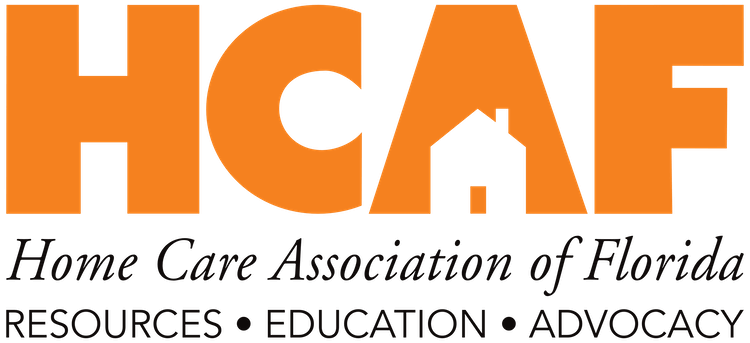Department of Labor Proposes Reinstating Companionship Exemptions: Key Implications for Home Care

Department of Labor Proposes Reinstating Companionship Exemptions: Key Implications for Home Care
On July 2, 2025, the United States Department of Labor (DOL) published a proposed rule to rescind its 2013 regulations interpreting the Fair Labor Standards Act (FLSA) as applied to home care workers and revert to the pre-2013 framework. If finalized, this change would significantly affect wage and overtime requirements for certain home care employees, with broad impacts on providers, workers, and consumers.
Background
In 1974, Congress extended FLSA protections to domestic service workers but exempted two groups: employees providing “companionship services” to individuals unable to care for themselves due to age or disability, and live-in domestic service employees. The 1975 regulations implementing this law allowed third-party employers, such as home health agencies, to claim these exemptions. Under that longstanding policy, companionship services included fellowship, care, and protection, along with household tasks like meal preparation and laundry.
However, in 2013, the DOL revised these rules, significantly narrowing the exemptions. The new regulations limited “care” duties to no more than 20% of weekly work hours for companionship workers and prohibited third-party employers from claiming either exemption. As a result, home health agencies became responsible for paying overtime and minimum wages to workers who were previously exempt.
The Proposed Rule
The proposed rule would fully rescind the 2013 amendments and reinstate the 1975 regulations. Specifically, it would:
- Restore Third-Party Employer Exemptions: Home health agencies would again be allowed to classify qualifying employees as exempt from federal minimum wage and overtime requirements for companionship services and exempt from overtime for live-in domestic service workers.
- Expand the Definition of Companionship Services: The exemption would cover fellowship, care, and protection without the 20% cap on care duties imposed in 2013. Covered activities would again include tasks such as meal preparation, bed making, and laundry unless performed by trained medical personnel like nurses.
The DOL justified its proposal by citing evidence that the 2013 rule increased administrative burdens and overtime costs without meaningfully improving wages or reducing turnover for home care workers. The agency noted that the limitations forced agencies to staff cases with multiple caregivers to avoid overtime, disrupting care continuity for seniors and individuals with disabilities. The DOL argues that restoring flexibility would improve access to home- and community-based services by reducing costs and enabling consumers to maintain consistent, trusted caregivers.
Implications for Home-Based Care Providers
If finalized, the rule would have several major effects:
- Reduced Labor Costs and Administrative Burden: Agencies would no longer need to track detailed overtime hours or implement split shifts to avoid overtime liability for companionship services, easing recordkeeping requirements and lowering direct wage costs for exempt workers.
- Improved Continuity of Care: Agencies could assign a single caregiver for extended shifts or live-in arrangements without triggering overtime costs, supporting stability and familiarity critical to high-quality in-home health.
- Potential Worker Income Losses: Some workers could lose overtime pay eligibility, potentially reducing earnings for those regularly working over 40 hours per week. Although the median hourly wage for home health and personal care aides is $16.78 nationally (and $13.00 per hour in Florida as of July 2025), overtime pay often supplements income for these low-wage workers.
- Impact on Workforce Recruitment and Retention: While agencies would benefit financially, worker advocates warn that exempting caregivers from overtime could worsen recruitment and retention challenges if total compensation is viewed as insufficient for demanding caregiving roles.
Next Steps
Public comments on the proposed rule are due by September 2, 2025. The DOL is particularly seeking data on how rescinding the 2013 rule might impact the supply of qualified home care workers, reduce regulatory burdens, or affect care quality and workforce stability.
HCAF will submit comments on behalf of Florida’s home care provider community and invites member feedback by August 15, 2025. Your insights are critical to shaping our response. Examples of helpful feedback include:
- In instances where weekly hours were limited due to overtime costs, what was the resulting impact on direct care workers?
- Do providers anticipate that the removal of overtime wages for these workers will further exacerbate workforce challenges?
- Will restoring third-party eligibility for the exemption have positive impacts on regulation, oversight, health, safety, or quality of care?
Please send your input to Kyle Simon, Senior Director of Policy, Advocacy & Communications, at ksimon@homecarefla.org.
How to Submit Comments Directly
Comments may be submitted online at Regulations.gov under Regulatory Information Number (RIN) 1235-AA51 or mailed to:
Division of Regulations, Legislation, and Interpretation
Wage and Hour Division
U.S. Department of Labor
Room S-3502
200 Constitution Avenue NW
Washington, DC 20210
